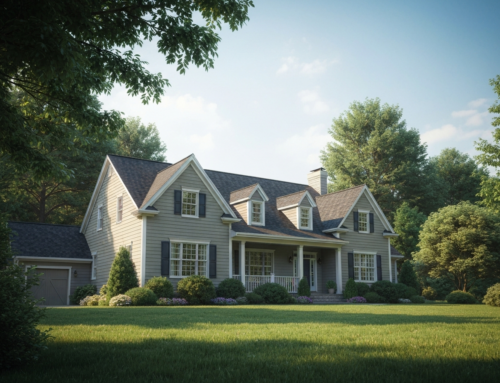Understanding the Growing Home Insurance Crisis
The landscape of home insurance in the United States is currently undergoing significant shifts, presenting homeowners with unprecedented challenges. Many property owners are finding themselves in a difficult position, either facing skyrocketing premiums or, in a growing number of cases, being dropped by their insurers altogether. This escalating crisis means that securing affordable home insurance after being dropped has become a pressing concern for many Americans.
Recent reports highlight the severity of this issue, with a considerable percentage of U.S. homeowners experiencing non-renewal or cancellation of their policies. This situation is particularly acute in regions prone to natural disasters, where the financial risks for insurance providers have soared. The consequence for property owners is a growing uncertainty about their ability to secure adequate and affordable coverage, a fundamental aspect of homeownership, especially for those with mortgages.
Why Insurers Are Dropping Homeowners and Raising Rates
Several interconnected factors contribute to the tightening home insurance market. The primary drivers are the increasing frequency and intensity of natural disasters, coupled with rising costs for repairs and reinsurance. As climate patterns shift, homes are becoming more susceptible to damage from events like wildfires, hurricanes, floods, and severe storms. This translates into higher payouts for insurers, who then pass these increased expenses onto policyholders through elevated premiums.
Insurers are also strategically managing their exposure to risk. This often means reducing the number of policies they write in high-risk areas. If a property is in a location frequently hit by specific perils, or if it has a history of claims, it can become a less attractive risk for standard insurance companies. This proactive risk management, while financially sound for insurers, leaves many homeowners in vulnerable positions, often leading to non-renewals or policy cancellations. The cost of rebuilding and repairing homes has also seen significant increases due to inflation and supply chain issues, further burdening insurers and contributing to higher rates.
The High Stakes of Losing Your Home Insurance Coverage
For homeowners, losing insurance coverage is not just an inconvenience; it can have severe financial repercussions. If you have a mortgage, your lender will almost certainly require you to maintain home insurance. If your policy is canceled and you cannot find a new one, your lender may obtain force-placed insurance on your behalf. This type of coverage is typically much more expensive and offers minimal protection, often only covering the lender’s interest in the property, not your personal belongings or liability.
Beyond lender requirements, going without coverage leaves your most significant asset vulnerable. Without proper insurance, any damage from natural disasters, theft, or accidents would have to be covered entirely out-of-pocket, potentially leading to financial hardship or even the complete loss of your home. It’s crucial to avoid any lapse in coverage to protect your investment and financial stability.
Finding Affordable Home Insurance After Being Dropped
If you’ve been dropped by your home insurer, the situation can feel daunting, but there are proactive steps you can take to find affordable home insurance after being dropped. The key is to act quickly and systematically:
- Understand the Reason for Cancellation: Your insurer is usually required to provide a reason for non-renewal or cancellation. Understanding this reason is the first step in addressing any underlying issues.
- Shop Around Extensively: Don’t just accept the first quote you receive. Obtain quotes from multiple insurance companies, including smaller regional carriers and those specializing in properties considered higher risk. An independent insurance agent can be an invaluable resource, as they can access quotes from various providers on your behalf.
- Explore State-Specific Programs: Many states offer Fair Access to Insurance Requirements (FAIR) Plans. These plans act as an insurer of last resort, ensuring that homeowners who cannot obtain coverage through the voluntary market still have access to basic property insurance. While FAIR plans often provide more limited coverage and may come with higher premiums, they are a vital safety net. You can often find information about these through your state’s department of insurance.
- Consider Adjusting Coverage: While it’s generally not advisable to significantly reduce necessary coverage, you might explore adjusting your deductible to a higher amount that you can comfortably afford in an emergency. This can often lower your premium.
For more detailed strategies on navigating difficult insurance situations, including finding solutions for hard-to-insure properties, refer to our article on Strategies for Uninsurable Property Home Insurance Solutions.
Smart Strategies to Lower Your Home Insurance Costs
Even if you’ve secured new coverage, or if you’re trying to prevent being dropped, there are smart strategies to keep your home insurance costs manageable. These go beyond simply finding a new policy and involve proactive measures to reduce your risk profile and maximize potential savings:
- Increase Your Deductible: A higher deductible means you pay more out-of-pocket before your insurance kicks in, but it can significantly reduce your annual premium. Ensure the deductible amount is something you can comfortably afford in an emergency.
- Inquire About Discounts: Always ask your insurer about available discounts. These can include discounts for bundling home and auto insurance policies with the same provider, installing safety features like smoke detectors, carbon monoxide detectors, security systems, or smart home technology, having a new roof or updated plumbing and electrical systems, or maintaining a good claims history.
- Improve Home Fortification: Invest in mitigating risks specific to your area. For instance, in hurricane zones, consider installing storm shutters or reinforcing your roof. In wildfire areas, create defensible space around your home. These improvements not only protect your property but can also lead to insurance premium reductions.
- Maintain a Good Claims History: Avoid filing claims for minor damages you can afford to cover yourself. Frequent small claims can flag your property as high-risk and lead to non-renewal or higher premiums.
Understanding the details of your personal insurance programs can help you make informed decisions about coverage and potential savings.
Preparing Your Home for Future Insurance Challenges
The current home insurance market suggests that homeowners need to be more vigilant than ever. Proactive preparation can make a significant difference in maintaining coverage and managing costs in the long term. This includes regularly assessing your home’s vulnerability to common perils in your area, such as wind, hail, flood, or fire, and taking preventative measures.
Consider:
- Regular Maintenance: Keeping your home well-maintained, especially critical systems like plumbing, electrical, and roofing, can prevent small issues from becoming large, costly claims.
- Risk Mitigation Upgrades: Invest in upgrades that reduce your home’s risk profile. This could involve updating an aging roof, reinforcing windows and doors, or installing backflow valves. Document all improvements with receipts and photos, as these can be provided to insurers to demonstrate reduced risk.
- Understanding Policy Details: Familiarize yourself with your current policy’s coverage limits, exclusions, and deductibles. Knowing what is and isn’t covered is crucial for planning. For example, standard home insurance policies typically do not cover flood damage, requiring a separate flood insurance policy. You can learn more about how home insurance policies work, and what to do if yours is canceled, through resources such as Bankrate’s guide on home insurance cancellations.
- Maintaining Good Communication: Stay in touch with your insurance agent or provider, especially if you make significant home improvements. They can often advise on potential discounts or changes in coverage needs.
By taking these steps, homeowners can better navigate the evolving insurance landscape, securing more affordable home insurance after being dropped, and protecting their valuable assets for years to come.
Have questions? Contact us here.






